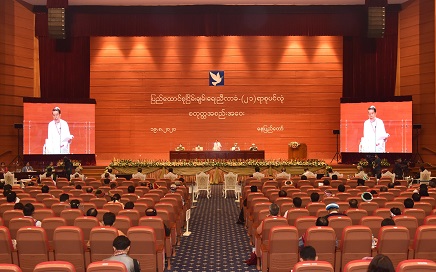The fourth Union Peace Conference, also called 21st Century Panglong, has ended with a new truce dealing with the implementation of the Nationwide Ceasefire Agreement (NCA) and an early plan for an eventual federal system. Members of the government, military and ethnic armed groups discussed several contentious issues surrounding how the NCA has been enacted since its ratification in 2015. These talks resulted in the Union Accord III, a wide-ranging treaty that concerns troop deployments, territory boundaries and other issues that have arisen at the intersections of Union and ethnic-controlled regions. Furthermore, the parties discussed a plan for a “democratic federal union beyond 2020,” as State Counsellor Aung San Suu Kyi phrased it in her closing remarks.
Some were disappointed in the lack of tangible gains. “They try to show to the world that they want to continue the peace process, which is just a sham. It’s not a real peace process,” KNU officer Ner Dah Bomya told Al Jazeera in a video interview. Several non-NCA signatories that had been invited to attend were not present, blaming COVID-19 concerns. Likewise, the Arakan Army, with which the Union wages the country’s most violent present conflict, was not in attendance.
On the other hand, the conference did represent movement on an effort that has slowed in recent years. Two of the largest ethnic NCA signatories, the Karen National Union (KNU) and the Restoration Council of Shan State (RCSS), had hitherto boycotted the peace process since 2018. With a general election merely months away, the fourth Panglong Conference served to show that progress is being made to achieve widespread peace, however slow.


